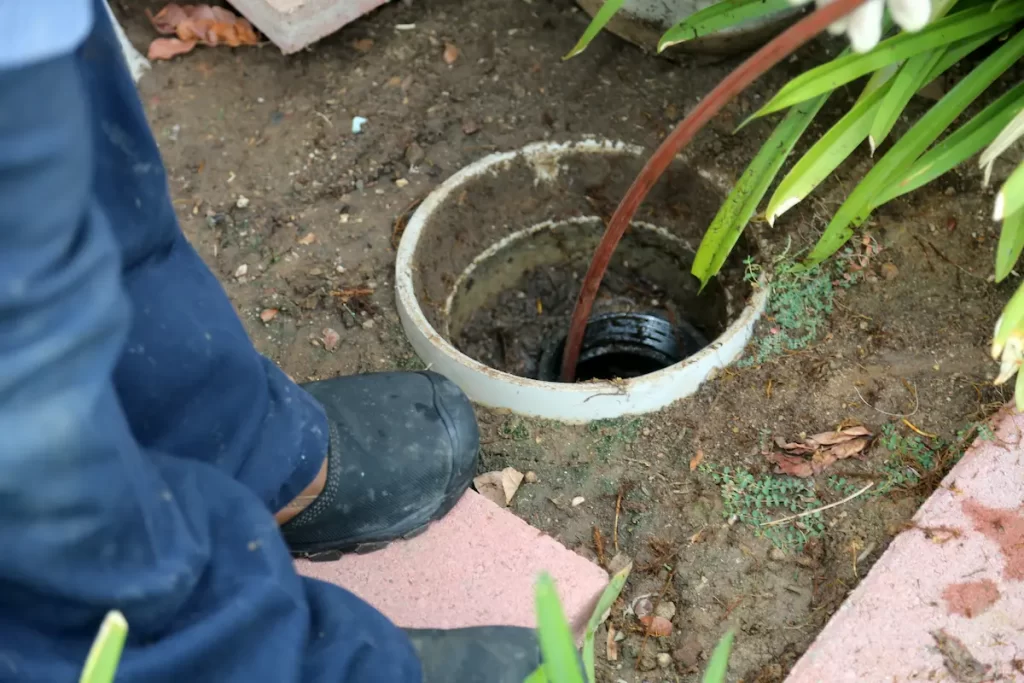Can you kill tree roots in a sewer line with bleach? Bleach can and will kill roots. However, it won’t dissolve them, so the blockage will still exist. Because of this, it’s best to turn to a foaming root killer or copper sulfate to deal with tree roots.
If tree roots get into your sewer line, it’s a big problem. It has the potential to do a lot of damage, which can be costly to repair. This has caused many people to ask whether bleach will be powerful enough to kill any tree roots that get into your sewage lines?
You don’t want to have tree roots penetrating through the sewage lines. Keep reading to find a way to solve this problem.

Related Reading: Is it Safe to Use Bleach to Kill Bushes?
Pros and Cons of Using Bleach to Kill Tree Roots
Tree roots are attracted to your sewage lines. They provide everything that the tree needs for survival. They have plenty of water and nutrients. Many older pipes have small cracks, which allow the roots to get inside. From there, they will quickly grow to clog the pipe.
So, will using bleach solve the problem? It might be a good place to start. People turn to bleach for a few reasons:
- It kills the roots. Bleach is high in chlorine. A little bit of this chemical isn’t going to do a lot to a tree. But if you use enough, it will poison it. This will stop the roots from growing. However, it will likely take a few applications.
- Easily available. You will be able to find bleach easily, it’s stocked at hardware stores.
However, this doesn’t mean that bleach is the ideal option for dealing with tree roots. Here are some of the biggest risks that this approach poses:
- Bleach can start a chemical reaction. One of the biggest risks associated with using bleach is what it can do once it’s in your pipes. There is a risk that it will react with other chemicals, like ammonia. This will release a toxic gas which can prove very dangerous to anyone in the house. You will also need to use gloves when handling it, to make sure that you don’t burn yourself.
- Bleach won’t break down the roots. This is the bigger problem. Enough bleach will kill the roots and stop them from growing. But they won’t dissolve the roots. Because of this, the blockage will remain.
- Corrosive. There is a risk that bleach will corrode the pipes. This can end up doing even more damage.
Because of these problems, it’s recommended that you avoid using bleach to deal with tree roots that are blocking your pipes. The good news is that there are some better options to explore.
Copper Sulphate to Kill Tree Roots
This is a good option if the tree roots are still relatively small. Plus, it doesn’t carry the same risk as some of the other solutions, like rock salt. It’s also easy to find, it should be in your local hardware store.
You won’t need a lot of copper sulfate; just a cup or so. Pour it into the toilet and flush. This will work its way through the pipes and dissolve the roots. You’ll need to repeat this process once a year.
However, you need to make sure that you don’t use the toilet or any other appliance that will flush water into the system for the next 12 hours. This ensures that it has plenty of time to dissolve the roots.
Epsom Salt to Kill Tree Roots
Salt can be a great way to kill plants. There are a few ways you can use this. First, let’s talk about how you can get the roots out of your sewer lines. This is a fairly simple operation. In this case, you will need to make a salt mixture. This is very simple just combine the following:
- A cup of salt
- A cup of vinegar
- A cup of baking soda
- A cup of boiling water
Stir it together to combine all the ingredients. Then, you’ll need to pour it down the drain. The baking soda and vinegar will fizz and clean the pipes. This will expose the roots, so the salt can kill them.
There is another way that you can use salt. It can be used to kill any tree stumps, whose roots might be affecting your pipes. This is fairly easy to do. First, you will need to combine one gallon of salt with two gallons of water. Then, pour this over the stump and use a tarp to seal it in.
It might take a while for this process to work. You will need to repeat it once a week until the stump has died.
Foaming Tree Root Killers
You might be able to find a product called a foaming root killer in your local hardware store. This has been designed for this purpose. All you need to do is follow the directions for use on the back of the packet.
Preventing Roots Getting into the Sewer Line
While there are plenty of ways to kill roots once they get into the line, it’s better to make sure that this doesn’t happen in the first place. There are a few simple ways you can do this, including:
- Using a root blocker. This is a physical barrier that roots won’t be able to get through. You will often need to get a landscaper to help you put these in.
- Be careful about where you are putting your plants. This is often the simplest option. There is an easy rule of thumb to find how large the root system will be. Often, it will be one and a half times the size of the tree.
- Upgrade your pipes. If you keep having this problem, the problem is likely due to old pipes. As they age, they will start to crack. This creates holes which the roots will be able to get through. Though it might be expensive, it might be worth upgrading your sewer lines to make sure that this doesn’t happen.
Related Reading: Can Bleach be Used to Pressure Wash a House?
Final Thoughts
While bleach might be a good way of killing the roots, that’s about all it does. Plus, there is the risk that it creates a dangerous gas. Because of this, it’s best to consider other options, like copper sulfate, Epsom salt, or a foaming root killer.
